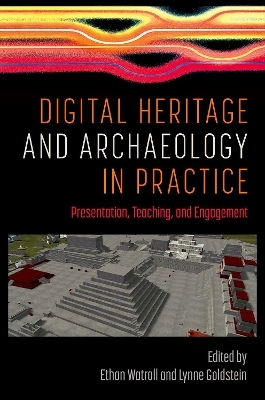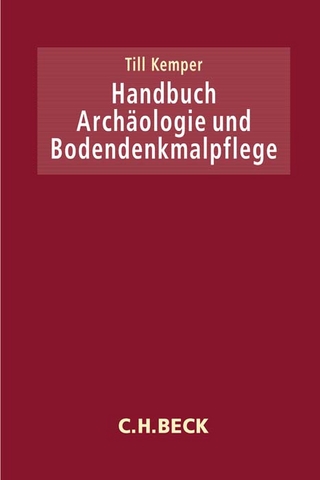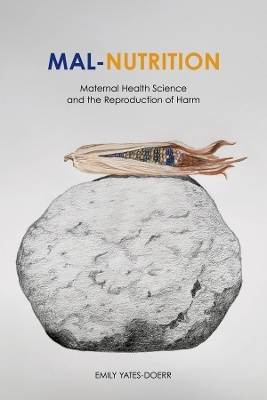
Digital Heritage and Archaeology in Practice
Presentation, Teaching, and Engagement
Seiten
2022
University Press of Florida (Verlag)
978-0-8130-6931-9 (ISBN)
University Press of Florida (Verlag)
978-0-8130-6931-9 (ISBN)
Brings together archaeologists and heritage professionals to discuss practical applications of digital and computational approaches to the field. Contributors explore the diverse and exciting ways in which digital methods are being deployed in archaeological interpretation and analysis, museum collections and archives, and community engagement.
Exploring
the use of digital methods in heritage studies and archaeological research
The two volumes of
Digital Heritage and Archaeology in
Practice bring together archaeologists and heritage professionals from
private, public, and academic sectors to discuss practical applications of
digital and computational approaches to the field. Contributors thoughtfully
explore the diverse and exciting ways in which digital methods are being
deployed in archaeological interpretation and analysis, museum collections and
archives, and community engagement, as well as the unique challenges that these
approaches bring.
In
this volume, essays address methods for preparing and analyzing archaeological
data, focusing on preregistration of research design and 3D digital topography.
Next, contributors use specific case studies to discuss data structuring, with
an emphasis on creating and maintaining large data sets and working with legacy
data. Finally, the volume offers insights into ethics and professionalism,
including topics such as access to data, transparency and openness, scientific
reproducibility, open-access heritage resources, indigenous sovereignty,
structural racial inequalities, and machine learning.
Digital Heritage and Archaeology in Practice highlights the importance of community, generosity, and openness in the
use of digital tools and technologies. Providing a purposeful counterweight to
the idea that digital archaeology requires expensive infrastructure,
proprietary software, complicated processes, and opaque workflows, these
volumes privilege perspectives that embrace straightforward and transparent
approaches as models for the future.
Exploring
the use of digital methods in heritage studies and archaeological research
The two volumes of
Digital Heritage and Archaeology in
Practice bring together archaeologists and heritage professionals from
private, public, and academic sectors to discuss practical applications of
digital and computational approaches to the field. Contributors thoughtfully
explore the diverse and exciting ways in which digital methods are being
deployed in archaeological interpretation and analysis, museum collections and
archives, and community engagement, as well as the unique challenges that these
approaches bring.
In
this volume, essays address methods for preparing and analyzing archaeological
data, focusing on preregistration of research design and 3D digital topography.
Next, contributors use specific case studies to discuss data structuring, with
an emphasis on creating and maintaining large data sets and working with legacy
data. Finally, the volume offers insights into ethics and professionalism,
including topics such as access to data, transparency and openness, scientific
reproducibility, open-access heritage resources, indigenous sovereignty,
structural racial inequalities, and machine learning.
Digital Heritage and Archaeology in Practice highlights the importance of community, generosity, and openness in the
use of digital tools and technologies. Providing a purposeful counterweight to
the idea that digital archaeology requires expensive infrastructure,
proprietary software, complicated processes, and opaque workflows, these
volumes privilege perspectives that embrace straightforward and transparent
approaches as models for the future.
Ethan Watrall is associate professor of anthropology, director of the Cultural Heritage Informatics Initiative, and director of the Digital Heritage Imaging and Innovation Lab at Michigan State University. Lynne Goldstein is professor emerita of anthropology and founding director of the Campus Archaeology Program at Michigan State University. She is the coauthor of Aztalan: Mysteries of an Ancient Indian Town. Goldstein is the recipient of a Lifetime Achievement Award from the Society for American Archaeology.
| Erscheinungsdatum | 14.05.2022 |
|---|---|
| Zusatzinfo | 73 b&w illustrations |
| Verlagsort | Florida |
| Sprache | englisch |
| Maße | 159 x 232 mm |
| Gewicht | 151 g |
| Themenwelt | Geisteswissenschaften ► Archäologie |
| Sozialwissenschaften ► Soziologie | |
| ISBN-10 | 0-8130-6931-9 / 0813069319 |
| ISBN-13 | 978-0-8130-6931-9 / 9780813069319 |
| Zustand | Neuware |
| Informationen gemäß Produktsicherheitsverordnung (GPSR) | |
| Haben Sie eine Frage zum Produkt? |
Mehr entdecken
aus dem Bereich
aus dem Bereich
maternal health science and the reproduction of harm
Buch | Softcover (2024)
University of California Press (Verlag)
CHF 52,35
Holocaust heritage, noncitizen futures, and black power in Berlin
Buch | Softcover (2022)
University of California Press (Verlag)
CHF 52,35


